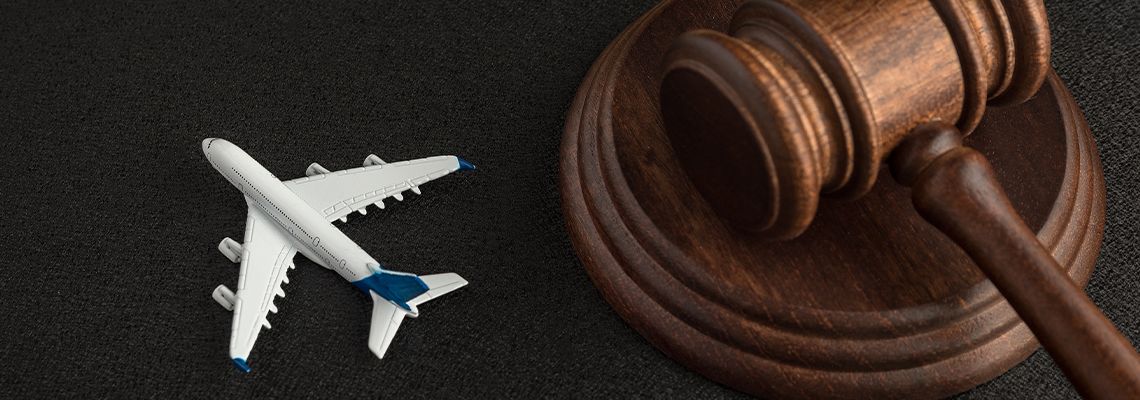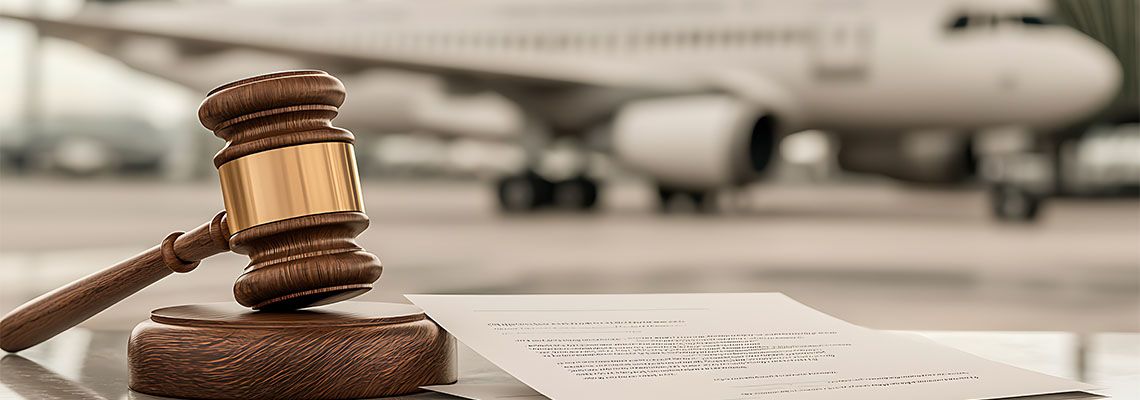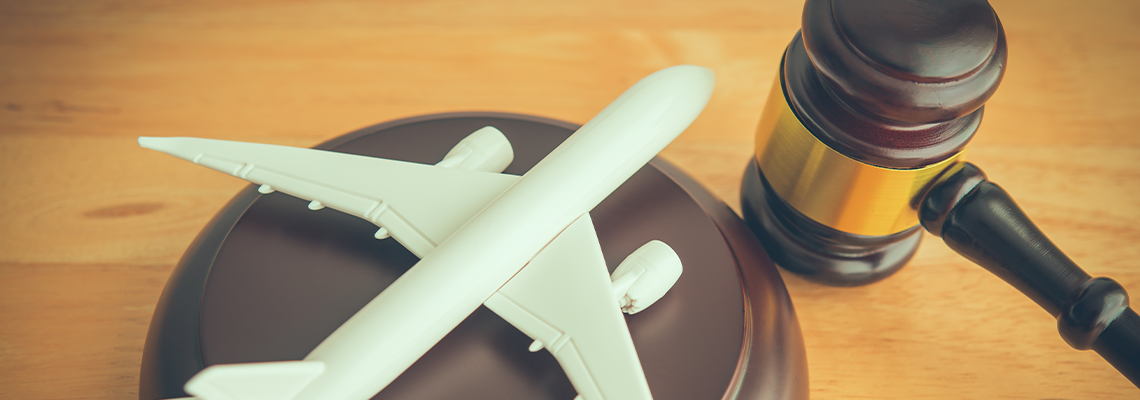Acquiring an aircraft for your business is a monumental step that can revolutionize your operations, improve efficiency, and even offer an edge in a competitive market. However, deciding whether to purchase or lease a plane is no small task.

What Should You Do If You Get a Letter of Investigation from the FAA?
Receiving a letter of investigation from the Federal Aviation Administration (FAA) can be an unsettling experience for pilots, aviation professionals, and even aircraft owners. This guide outlines steps you should take if you find yourself in this position, particularly in Texas.
If you need aviation law representation in Houston, Dallas, Austin, San Antonio, or any region of the state of Texas, contact William G. Harger & Associates, PLLC as soon as you can.
Understand the Nature of the Investigation
When you receive a letter of investigation, it’s essential to understand the following about the investigation process:
The first step is to thoroughly read and understand its contents.
Understand why the FAA initiates investigations: The FAA typically begins the investigation process for various reasons, such as safety concerns, regulatory violations, or complaints from the public.
Understand what specific issues are being raised: The letter should outline the allegations or concerns prompting the investigation.
Pay attention to any deadlines or info requests: These details can be critical in formulating your response.
Gather Relevant Documentation
Once you understand the situation, it’s important to prioritize documentation by doing the following:
Start gathering any relevant documentation: This could include flight logs, maintenance records, communications with air traffic control, and any other materials pertinent to the investigation.
Compile records specific to Texas regulations: You may also want to or any relevant local aviation authority guidelines.
Make sure documentation is accurate: Precisely detailed documents play a vital role in supporting your case. Having accurate records at hand allows you to respond effectively and demonstrate compliance with aviation law.
Consult With a Legal Professional
Working through an investigation can be intricate, particularly when it involves aviation law. Seeking legal advice is a prudent step for the following reasons:
Invaluable, experienced insights into the process: An attorney familiar with aviation law may help you understand your rights and advise you on how to proceed. Choose a lawyer who has experience handling FAA investigations.
They can assist in each step of the process: An experienced aviation attorney may assist with interpreting the letter, preparing responses, and representing you in any hearings if necessary.
Professionals can deliver case-specific solutions: In Texas, various legal professionals focus on aviation law and can provide guidance tailored to your specific situation.
Prepare a Thoughtful Response
Once you’ve gathered your documentation and consulted with a legal professional, it’s time to prepare your response. Be concise and clear, addressing the specific concerns raised in the letter. If there are facts that support your position, include them.
If there were misunderstandings or miscommunications, clarify them in your response. Your aim should be to provide a comprehensive picture that addresses the FAA’s concerns while also demonstrating your commitment to safety and regulatory compliance.
Submit Your Response Timely
Timeliness is key when responding to an FAA investigation. The letter will usually indicate a deadline for your response. Missing this deadline can lead to negative consequences, including the potential for further action against you.
Make sure that your response is sent via a method that provides proof of delivery, such as certified mail. This can serve as evidence that you complied with the FAA’s requests in a timely manner.
Be Prepared for Follow-Up Actions
After submitting your response, be prepared for any follow-up actions required, including:
Providing additional information or clarifications: The FAA may request that you supply extra details on your submission.
Responding promptly to requests: Thoroughly and quickly returning information requested along the way can help demonstrate your cooperation with the investigation.
Comply with interviews or site visits from the FAA: It’s advisable to have legal representation present with you for this stepso that your rights are protected and that you respond appropriately to questions posed by FAA representatives.
Understand the Possible Outcomes
The FAA investigation can lead to several potential outcomes, such as:
No further action: If the investigation reveals no violations or concerns, you may receive a letter confirming that no further action will be taken.
Repercussions: If the FAA finds evidence of non-compliance, you could face various consequences ranging from warnings to penalties.
Certificate revocation: In severe cases, you might encounter suspension or revocation of your pilot’s certificate or other certifications.
Understanding these potential outcomes is crucial as you go through the investigation process.
Consider Professional Repercussions
The consequences of an FAA investigation can extend beyond regulatory penalties. Depending on the findings, you might experience professional repercussions, including impacts on your employment or reputation within the aviation community.
In Texas, where the aviation industry is significant, maintaining a positive reputation is vital for career advancement. If you’re operating under the supervision of a broader company, communicating with your employer about the investigation is advisable, as transparency can help mitigate any fallout and demonstrate your commitment to resolving the issues at hand.
Reflect on Your Practices
Regardless of the investigation's outcome, use this experience as an opportunity to reflect on your practices and compliance with aviation law. If any areas of non-compliance or procedural oversights were identified, take proactive steps to correct them.
This may involve additional training, revising operational protocols, or implementing new safety measures. Committing to continuous improvement can't only help you avoid future investigations but also enhance overall safety within your operations.
Stay Informed About Aviation Law
Keeping abreast of aviation law is essential for anyone involved in the industry. Laws and regulations can change, and being informed can help you avoid pitfalls in the future. Consider doing the following to build your understanding of aviation law in Texas:
Attend aviation law seminars and workshops regularly.
Stay updated on Texas-specific FAA regulations and compliance standards.
Consult with an aviation attorney to understand how local laws affect your operations.
Join professional aviation organizations that offer legal resources and updates.
Review any recent changes to state and federal aviation policies that may impact you.
Emphasize Safety and Compliance
In the face of an FAA investigation, always prioritize safety and compliance. The FAA's primary mission is to prioritize aviation safety, and demonstrating your commitment to this principle can go a long way in your defense.
Whether you’re a pilot, a maintenance technician, or an aircraft owner, your actions should reflect a dedication to safe aviation practices. This includes following regulations, conducting regular training, and maintaining aircraft in accordance with industry standards.
Consider the Broader Implications
An FAA investigation can have broader implications beyond the immediate consequences for you. It can affect your team, organization, and even the perception of aviation in your community.
In Texas, where aviation is integral to the economy, a strong safety record is vital. Contributing positively to the industry's reputation can benefit not just you but also your peers and the entire aviation sector in the region.
Consult With a Reliable Aviation Law Attorney
Receiving a letter of investigation from the FAA is a serious matter that requires thoughtful actions, including critical steps such as:
Understanding the nature of the investigation
Gathering relevant documentation
Consulting with a legal professional
Preparing a thorough response
The importance of aviation law can't be overstated, as it governs the system within which you must operate. By staying informed, emphasizing safety, and reflecting on your practices, you can mitigate risks and position yourself for a positive outcome, both in the immediate situation and in your broader aviation career.
Turn to Our Comprehensive Services
When you need an aviation law attorney to help you with your case, turn to William G. Harger & Associates, PLLC today. Offering an approachable and detail-oriented method of working cases, Bill has helped countless licensed pilots, licensed mechanics, and other aviation attorneys resolve their legal disputes. Contact us to schedule a consultation today.
RECENT POSTS
Corporate aircraft are valuable assets that require meticulous care to operate safely, effectively, and in compliance with regulations. For aircraft owners, operators, and aviation businesses, it's not just about ensuring the aircraft remains airworthy but also about protecting the significant investments tied to these machines.
The aviation industry is a dynamic and complex sector, where businesses often collaborate to share resources, reduce costs, and expand their reach. One of the most effective ways to achieve these goals is through a joint venture. Whether it’s a partnership between airlines to streamline operations or a collaboration between manufacturers to develop cutting-edge aircraft technology, joint ventures play a pivotal role in shaping the industry.



